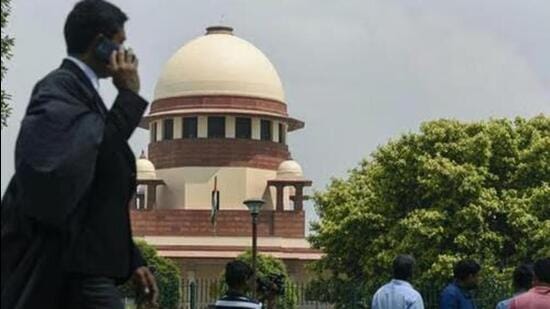SC orders formation of committee for appointment of V-Cs in WB universities
According to the court order, the CM is entitled to recommend the shortlisted names in order of preference to the chancellor
The Supreme Court on Monday ordered the constitution of a search and selection committee to resolve the impasse between the West Bengal government and Governor CV Ananda Bose over the appointment of vice-chancellors (VCs) of universities in the state.

A bench of justices Surya Kant and Ujjal Bhuyan ordered the committee’s formation within two weeks, noting that both the state and the office of the governor agreed on the constitution of the committee for appointing VCs in at least seven universities in West Bengal that functioned without full-time VCs.
The committee will be headed by former Chief Justice of India Uday U Lalit, said the bench, adding it will comprise five members who will prepare a panel of three names, listed alphabetically, for each university’s VC appointment.
Leaving it to the former CJI to have separate or joint selection committees for the universities where VCs are to be appointed, the court directed that the entire selection process be completed in three months.
Also Read: Bengal looks to make CM chancellor of its varsities
The committee’s recommendations, endorsed by the chairperson (justice Lalit), will be presented to the chief minister (CM).
“If the CM finds any candidate unsuitable, the supporting material and remarks will be forwarded to the chancellor (governor) within two weeks,” directed the bench.
According to the court order, the CM is entitled to recommend the shortlisted names in order of preference to the chancellor, who will appoint the VCs from the empanelled names as recommended by the former. Should the governor have reservations about the candidates or the CM’s remarks, the bench held, he may file his own opinion, supported by material and reasons. Once the governor approves the names, the state’s concerned department must notify the appointment within one week of receiving the approval.
The Court also stipulated that it would make the final decision if either party objects to the shortlisted names and the objections are not mutually resolved.
The expenses of the committee will be borne by the state, with former CJI Lalit receiving ₹3 lakh per effective meeting of the committee.
The bench was hearing a petition filed by the West Bengal government, challenging the June 2023 judgment of the Calcutta high court that had upheld the interim vice-chancellor appointments made by Governor Bose in 13 universities, in his capacity as the chancellor of the institutions. There are 36 universities in the state.
Earlier this year, in April, the Court was informed that the governor had agreed to fill six vacancies of VCs from the list recommended by the West Bengal government. Additionally, the Court asked the state government to send recommendations for the remaining vacancies.
During subsequent hearings, the Court had warned both parties that it would appoint the VCs if they failed to do so amicably. This warning came after the Chancellor rejected seven out of fifteen candidates proposed by the State for VC appointments and did not consider the rest.
On May 18, the Court ordered the appointment of the remaining eight persons within one week and directed the state government to send about twelve to fifteen names of eminent persons for reconsideration by the Chancellor to fill the seven vacant positions.
Finally, noting that both parties agreed on the constitution of a Search Committee for appointing VCs in the remaining universities, the Court ordered the committee’s formation
This Supreme Court’s intervention is part of a broader pattern of conflicts between governors and state governments, particularly in states ruled by non-BJP parties. Disputes over the passage of bills, appointment of key authorities and other governance issues have frequently brought state administrations and governors into conflict, requiring the top court to step in.
The elected governments of Tamil Nadu, Kerala, Telangana and Punjab, all ruled by parties opposed to the Bharatiya Janata Party (BJP) which runs the Union government, have alleged that Governors are exceeding their constitutional remit by refusing to sign off on legislations and behaving like agents of the Centre.
All these states have approached the Supreme Court, which issued pertinent directions to the governors’ offices for not withholding the bills or other legislative businesses of the cabinet that hamper the working of a democratically elected government in the state.






